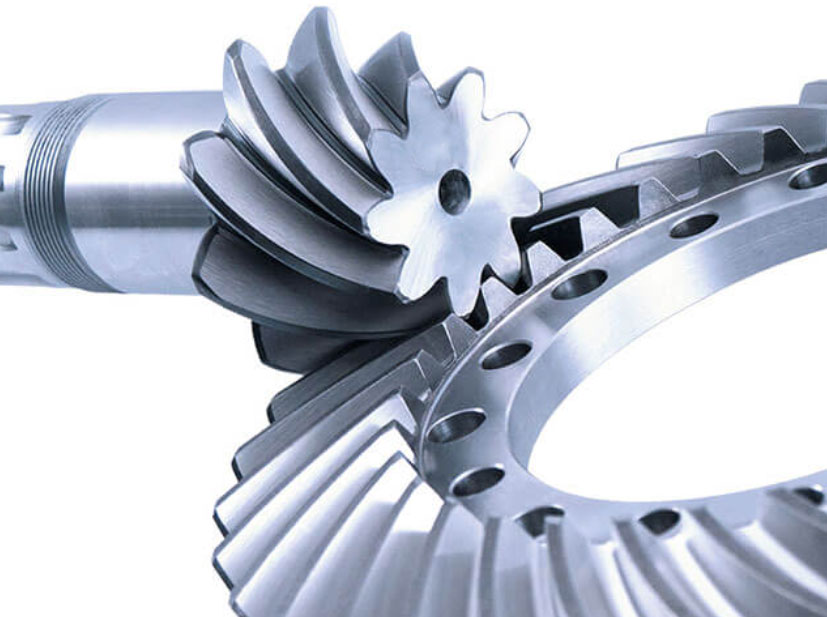
Precision manufacturing of spiral bevel gears presents unique challenges due to the complex tooth geometry and demanding applications in which they are used. Overcoming these challenges is crucial to ensure the gears meet the required specifications and provide reliable performance. Here are some of the main challenges faced in precision manufacturing of spiral bevel gears and their potential solutions:
1. Tooth Geometry and Tooth Form Correction:
- Challenge: The helical tooth form of spiral bevel gears requires precise tooth geometry to achieve proper tooth engagement and load distribution. Tooth form correction is often necessary to compensate for any deviations during the manufacturing process.
- Solution: Advanced gear design software and simulation tools can be used to model the tooth geometry accurately. Additionally, modern CNC gear grinding machines can apply tooth form correction to ensure the correct profile and tooth contact pattern.
2. Surface Finish and Tooth Profile Accuracy:
- Challenge: Achieving the required surface finish and tooth profile accuracy is essential for reducing friction, minimizing noise, and ensuring smooth gear operation.
- Solution: Using high-precision CNC gear cutting and grinding machines, along with precise control of cutting tools and grinding wheels, can help achieve the necessary surface finish and tooth profile accuracy. Sophisticated measurement and inspection equipment are also employed to verify the gear’s accuracy.
3. Machining and Tooling Complexity:
- Challenge: The complex three-dimensional geometry of spiral bevel gears makes their machining and tooling more challenging than other gear types.
- Solution: Investing in advanced multi-axis CNC machines and specialized tooling is essential to efficiently manufacture spiral bevel gears. The use of modern gear cutting and grinding technology reduces machining complexity and increases productivity.
4. Axial Thrust and Bearing Preload:
- Challenge: Spiral bevel gears generate axial thrust due to their helical tooth form. Proper bearing preload is crucial to balance the axial forces and ensure the gears’ reliable operation.
- Solution: Designing the gears and bearings to handle the axial thrust and preloading the bearings to counteract the axial forces are essential steps in the manufacturing process.
5. Heat Treatment and Material Selection:
- Challenge: Choosing the right material and applying the appropriate heat treatment process is critical to achieve the desired hardness, strength, and durability in the gears.
- Solution: Careful material selection based on the application requirements and proper heat treatment techniques, such as carburizing and quenching, help produce gears with the necessary mechanical properties.
6. Quality Control and Inspection:
- Challenge: Ensuring consistent quality and meeting tight tolerances in mass production can be a challenge in precision manufacturing.
- Solution: Implementing rigorous quality control measures, including in-process inspections and final testing, can help identify any deviations and ensure all gears meet the required specifications.
7. Expertise and Skilled Workforce:
- Challenge: Precision manufacturing of spiral bevel gears requires specialized knowledge and skilled personnel.
- Solution: Investing in ongoing training and hiring experienced gear manufacturing experts can ensure a skilled and knowledgeable workforce capable of handling the challenges associated with spiral bevel gear production.
By addressing these challenges and implementing suitable solutions, manufacturers can achieve precision manufacturing of spiral bevel gears, producing high-quality gears that meet the demanding requirements of various industrial applications.
